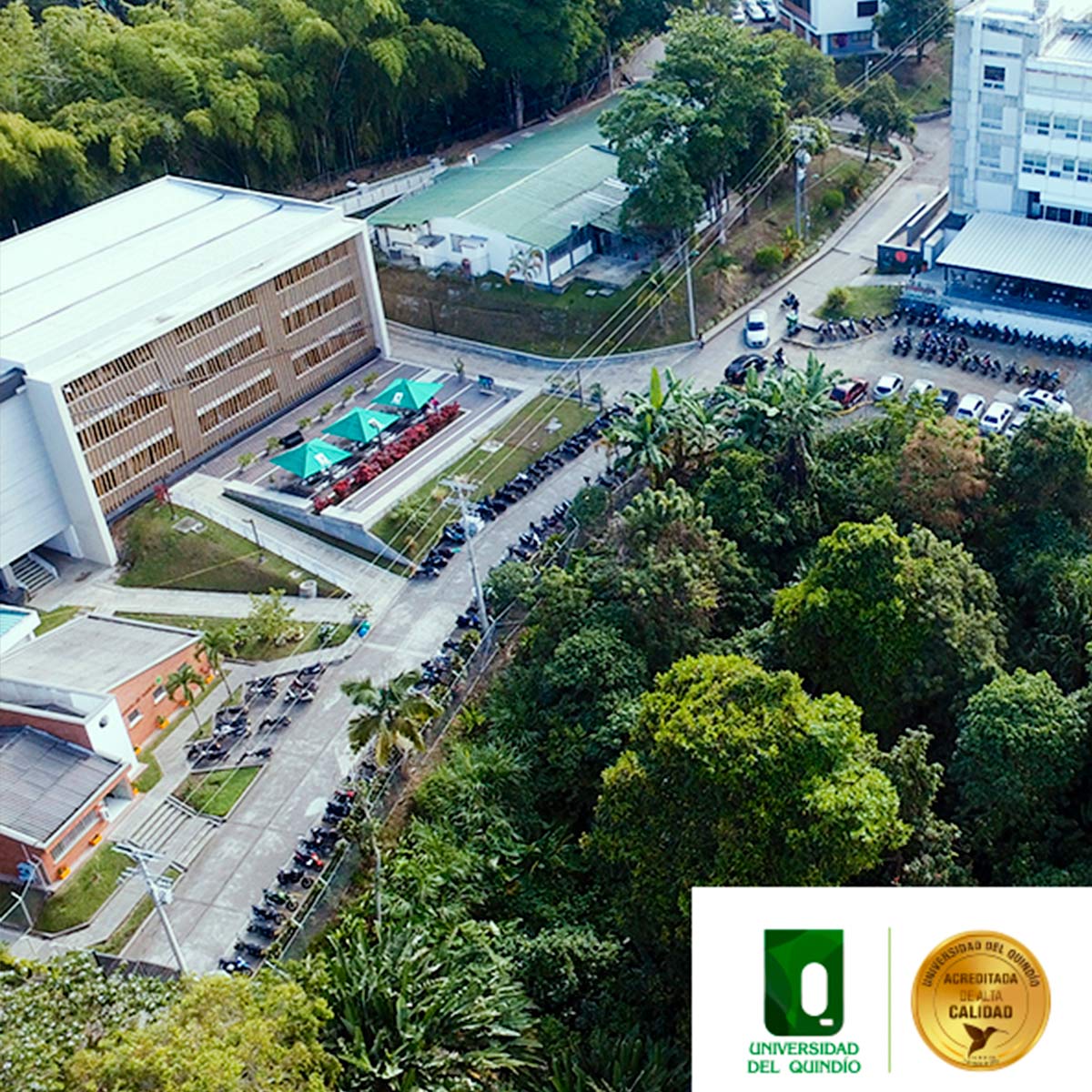
The University of Quindio is a higher education institution accredited with high quality, based in Quindio, a west center state in Colombia, special for its biodiversity and for being located in the colombian coffee grower landscape zone, Declared as Humanity’s Heritage. This university has 7 faculties, 34 academic undergraduate programs and 15 post graduate programs, in which it prepares approximately 18000 students, proceeding from several regions, using face-to-face, distance and virtual methodologies.
Its missional guidelines, research and social projection, are founded on suitable creative and integrative practices, that allow it to act in permanent connection with the necessities of the context, encouraging knowledge dialogue and sustainable development.
Uniquindio influences several regions of Colombia through its Centers of Tutorial Attention of distance education, that integrate to social, environmental and cultural dynamiques from cities and territories far from the central campus located in Armenia, capital city of the state. There, students with different backgrounds and professional, technological and work fields, find a chance for a suitable formation and of high quality to participate in their own hometown’s development.
The recently created Vice-Rectory of Extension and Social Development, works as a linking axis for professional formation and research, adequately projecting the integrated knowledge in the interdisciplinary framework, aiming to co-produce solutions to complex problems with the base communities, the productive field and the State. The university also has The Academic Vice-Rectory, Administrative Vice-Rectory and Research Vive-Rectory, that work jointly to favour the achieving of the institutional mission and social responsibility.
On the modules, in undergraduate programs there are academic spaces of general component as “Uniquindianidad”, Multidisciplinar Chair or with academic spaces of personal component as Financial Education, Entrepreneurship, or Disaster Risk Management.
On a matter of structural alignment with the SUS-TER model, the university has optional academic spaces, of previous approbation by the Curricular Council, in the undergraduate and postgraduate academic programs from the faculties.
This is how the interest niches are distributed while joint directly to the formation offer of the SUS-TER model:
Engineering Faculty: Civil Engineering Undergraduate, Topography Technology (currently in process to create the program of Geomatics and Topography Engineering); Electronic Engineering, in environmental perspective with possible applications in precision agriculture; Systems Engineering and Computing, with potential in Augmented Reality, applied to productive chains of agro and other contexts of applied research.
Postgraduate: Master in Engineering with speciality in hydric resources and environment.
Faculty of Agro-industrial Sciences: Undergraduate in agricultural and livestock Technology; Agro-industrial Technology and Food Engineering.
Faculty of Human Sciences and Fine Arts: Undergraduate in Social Work and Social Communication and Journalism. Existence of the Center of Regional Studies with speciality in Cultural Coffee Grower Landscape
Faculty of Education Sciences: Undergraduate of Natural Sciences and Environmental education.
Postgraduate: Master in Environment.
Faculty of Basic and Technological Sciences: Undergraduate of Biology. Diplomas: Cultural Coffee Grower Landscape, Soil conservation, Conservation’s Biology, Medicinal Plants.